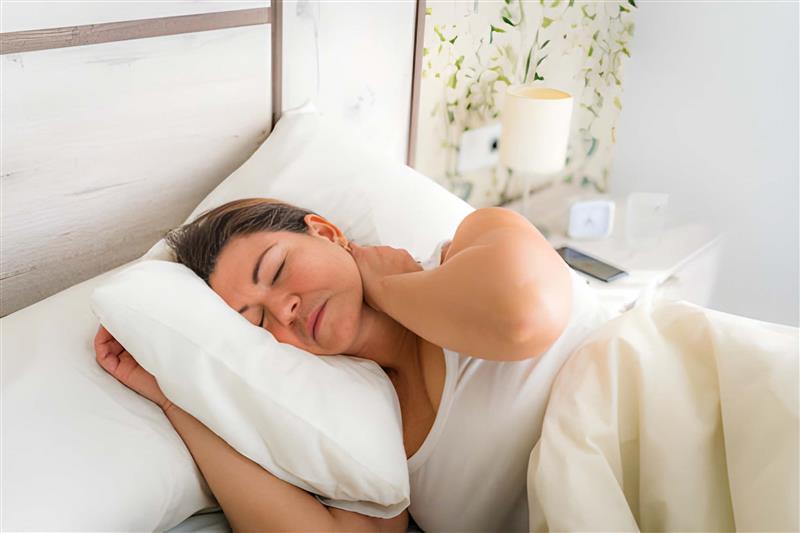Pillows for No Neck Pain: What an Osteopath Wants You to Know
Waking up with neck pain can set the tone for an uncomfortable day. For many people, the culprit isn’t a strenuous workout or long hours at a desk—it’s their pillow. Choosing the right pillow can make a significant difference in spinal alignment, muscle relaxation, and overall sleep quality. In this guide, we’ll explore how to select pillows that support a pain-free neck, backed by principles commonly recommended by osteopaths.

Why Your Pillow Matters
Your neck contains a delicate curve that supports your head, protects your nerves, and connects to the muscles that run through your shoulders and upper back. When a pillow is too high, too flat, too soft, or too firm, this natural curve can become strained. Over time, muscles work overtime to compensate, leading to stiffness, discomfort, or limited mobility upon waking.
An osteopath often sees this pattern in patients who don’t realize their pillow is contributing to the issue. A pillow that supports proper alignment can keep the spine neutral, reduce night-time tension, and prevent the buildup of morning neck pain.
Signs Your Pillow May Be Causing Neck Pain
Before choosing a new pillow, check for these common warning signs:
1. You wake up with stiffness or soreness in your neck or shoulders.
2. Your pillow feels lumpy, saggy, or uneven.
3. You find yourself folding or adjusting the pillow during the night.
4. You frequently sleep with your hand or arm under the pillow for extra height.
5. You wake up with headaches that ease as the day goes on.
If one or more of these sound familiar, it may be time to upgrade.
Best Pillow Types for a Pain-Free Neck
1. Memory Foam Pillows
Memory foam pillows adapt to the shape of your neck and head, providing consistent support all night long. Many osteopaths recommend them because they help maintain a stable sleeping posture and reduce pressure on the cervical spine. They’re especially suitable for side sleepers, who often need structure to keep the neck aligned.
2. Contour Pillows
A contour pillow, often made of memory foam, features a curved design that cradles the neck. This shape promotes natural alignment and can be especially helpful for people with chronic stiffness or those recovering from mild neck injuries. The raised edges and lower center support both back and side sleepers.
3. Latex Pillows
Natural latex pillows offer a combination of firmness and gentle cushioning. They’re breathable, durable, and resist sagging, making them ideal for maintaining neck support over time. They suit sleepers who prefer a responsive, slightly firmer feel.
4. Adjustable Fill Pillows
Pillows with adjustable filling—such as shredded foam or microfibre—allow you to customize the height and firmness. Osteopaths often encourage experimenting with loft until you find a level that keeps your neck aligned without strain.
5. Buckwheat Pillows
Though not for everyone, buckwheat pillows mold closely to your head and neck. Their natural hull filling provides stable support and stays cool throughout the night. They work well for people who tend to overheat while sleeping.
Choosing the Right Pillow Based on Your Sleep Position
Your ideal pillow depends on how you sleep:
Back Sleepers
Choose a medium-loft pillow that supports the natural curve of your neck without pushing your head forward. Contour pillows are particularly effective.
Side Sleepers
Look for a higher, firmer pillow that fills the space between your shoulder and head. This prevents your neck from dipping downward or tilting upward.
Stomach Sleepers
This position can strain the neck regardless of the pillow used. If you can’t switch positions, use a very thin pillow or sleep without one to reduce twisting.
Tips From Osteopaths for Better Sleep and Less Neck Pain
- Replace your pillow regularly. Most pillows lose their shape within 18–36 months.
- Test the pillow in-store if possible. Rest your head on it for several minutes to assess support.
- Consider the entire sleep setup. Even the best pillow won’t help if your mattress lacks support.
- Monitor how you feel in the morning. Your neck should feel neutral and relaxed, not tight or sore.
Final Thoughts
The right pillow can be a simple yet powerful tool for preventing neck pain. By choosing one that supports proper alignment and complements your sleep style, you can dramatically improve your comfort and overall well-being. If you’re unsure where to start or still waking up in pain, consider visiting an osteopath for personalised advice—they can help pinpoint the best pillow and sleep habits for your unique needs.
Treatments covered by private health insurance





